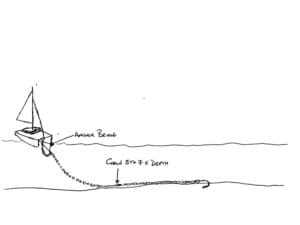 When purchasing a boat, there are a lot of details that need to be addressed. The “for sale by owner” concept is great for the Seller since he/she does not have to pay a brokerage commission, but it is no so good for the Buyer. It takes away the ability for the Buyer to have his own experienced and trusted advisor in his/her corner which is not beneficial to the Buyer.
When purchasing a boat, there are a lot of details that need to be addressed. The “for sale by owner” concept is great for the Seller since he/she does not have to pay a brokerage commission, but it is no so good for the Buyer. It takes away the ability for the Buyer to have his own experienced and trusted advisor in his/her corner which is not beneficial to the Buyer.
What the Broker does for the Buyer:
- Help the Buyer understand their needs and wants and help them find boats that fit the criteria. A good yacht broker will pre-screen boats for you, but use our pre-survey boat inspection checklist to ask all the right questions before you commit to a visit or pay for a survey.
- When drafting an offer to purchase, the Broker will offer advice on legal language, how to properly word the document, and other aspects that will be foreign to most boat buyers. The Broker will have Purchase and Sale agreements for the Buyer to use. If the Buyer does not have a Broker, s/he should retain an attorney at an additional cost.
- The Seller will likely want earnest money (deposit) before accepting an offer subject to survey and sea trial. This means the Buyer will need to find an escrow agent, which is another additional cost to the Buyer.
- Once the offer is accepted, there is a process that needs to be followed
- Find a reputable marine surveyor – the Buyer would usually be able to find a surveyor on the internet, but a good broker can recommend a number of reliable and trustworthy surveyors that the Buyer can interview. It saves time and the buyer can have confidence that he will be in good hands.
- Arrange haul out for survey – an experienced broker will have good connections with different haul out facilities and can make all the arrangements for the Buyer. This can be a complicated process for the uninitiated and takes some negotiating. Here’s our yacht haul out checklist.
- Confirm with the Seller that they will be the captain for the sea trail and haul out and confirm yacht insurance of the vessel by the Seller.
- Coordinate the entire process with the Buyer, Seller, Surveyor and the haul out facility.
- A good yacht broker will usually attend the survey with the Buyer at no cost so the Buyer has a knowledgeable advisor with them for this important part of the process.
- Once the survey is completed and the report received by the Buyer, a Broker’ provides expertise to help the Buyer decide whether to accept the vessel or give the Seller a Conditional Acceptance – the Broker will have all these forms available and can advise what language should be added to the contract.
- Once the Survey has been completed and the Acceptance negotiated out, the boat will need to be documented and / or de-flagged if foreign registered.
- The broker will be able to guide the Buyer to a good documentation agent who will do the following:
- Do an abstract of title to make sure the boat is unencumbered. If it is in order, then make the arrangements to do the payoff of mortgage before the funds are released to the Seller.
- Register the vessel in the desired jurisdiction. If the vessel is foreign flagged then there will need to be a re-flagging certificate obtained to be able to register the vessel in the name of the Buyer before final closing. This can be a very complicated process and should be done with great care.
- Pay any State taxes on behalf of the Buyer if applicable.
- Once the Buyer takes possession of the vessel, the broker is a really good source to advise and direct the Buyer to good reputable vendors for upgrades and improvements – which there always are.
In summary, For Sale by Owner is great for the Owner but it takes away all the advantages of the Buyer having their own representation, which is not so great for the Buyer.
If one considers the size of the transaction and the costs that the Buyer will incur to get a transaction over the finish line without a broker as well as the risk of not knowing what he does not know, it makes total sense to have a professional broker representing the Buyer.
Lastly a good broker will usually be able to negotiate the asking price down to further justify his representing the Buyer which would also reduce the cost of the brokers representation to the Buyer.





